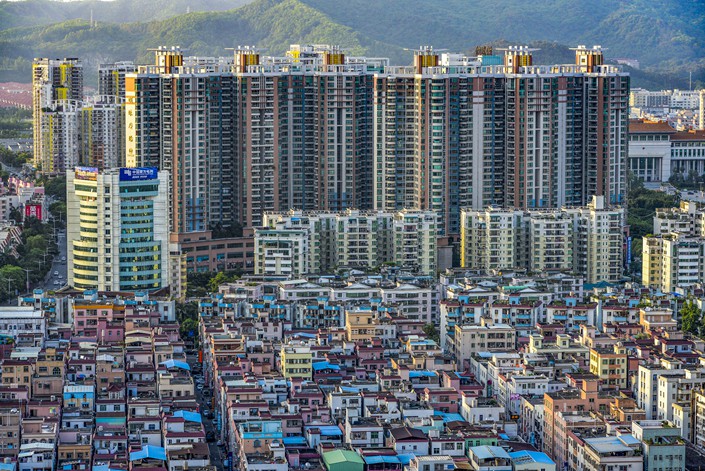New Tax Option Drives Up Existing Home Sales in Southern City

The number of existing homes sold in one southern Chinese city more than tripled in March from the previous month after the local government effectively lowered the tax on home sales.
The change in Dongguan’s tax policy is the latest move by local governments to remove obstacles in their local property markets.
In March, 2,521 existing homes were sold in Dongguan, South China’s Guangdong province — about the same number of sales in the first two months of the year combined, according to data from the research department of the Shenzhen-based real estate agency, Leyoujia Holding Group Ltd. March sales were up 217.51% from the previous month.
“From the transactions I handled myself, existing home sales were up three to four times compared with the same period last year,” said Liu Xiong, general manager of Centaline Property Agency’s existing home sales business in Dongguan.
The surge in sales came after Dongguan’s government changed the tax rules for existing home sales on March 11. The change gave sellers the option to pay either a 20% tax on the increase in the value of their property since they bought it — or a 2% tax on the total transaction price. In the past, the sellers of existing homes in Dongguan had no choice other than paying the 20% tax.
The new tax option is better for sellers whose homes have appreciated more than 11.1% in value, according to Caixin calculations. From 2016 to 2018, the average per-unit price of an existing home in Dongguan rose 30.2%, according to Leyoujia.
“The adjustment will greatly help boost existing home sales, even new home sales,” Liu told Caixin earlier when asked about the policy change. He said the policy change will increase demand for existing homes, and encourage existing-home owners to sell their homes.
As China’s economy slows, the central government has softened its tone on regulating the property market, a pillar of the domestic economy. At a key meeting in December, policymakers indicated they would take a different approach to managing the property market, allowing local governments more freedom to adjust restrictions based on conditions in their own local markets.
As the property market cools, there has been a loss in momentum in land transactions, which has hurt local governments because they rely on land sales for a significant share of their revenue, Li Yujia, a researcher at Shenzhen Real Estate Research Center, managed by Shenzhen Bureau of Planning and Natural Resources, said in March.
Dongguan is one of several localities in China that has loosened restrictions on the property market as the country’s economic growth has slowed. Major cities like Beijing, Shanghai, Guangzhou and Shenzhen have lowered the property transaction tax rate, and have cut the value-added tax rate and stamp duty on existing home sales.
Contact reporter Liu Jiefei (jiefeiliu@caixin.com)

- 1Cover Story: China Carves Out a Narrow Path for Offshore Asset Tokenization
- 2Drownings Shake Chinese Enthusiasm for Travel to Russia
- 3Over Half of China’s Provinces Cut Revenue Targets
- 4Li Ka-Shing’s Port Empire Hit by Forced Takeover Amid Panama Legal Dispute
- 5In Depth: China’s Mutual Fund Industry Faces Overhaul After a Banner 2025
- 1Power To The People: Pintec Serves A Booming Consumer Class
- 2Largest hotel group in Europe accepts UnionPay
- 3UnionPay mobile QuickPass debuts in Hong Kong
- 4UnionPay International launches premium catering privilege U Dining Collection
- 5UnionPay International’s U Plan has covered over 1600 stores overseas






